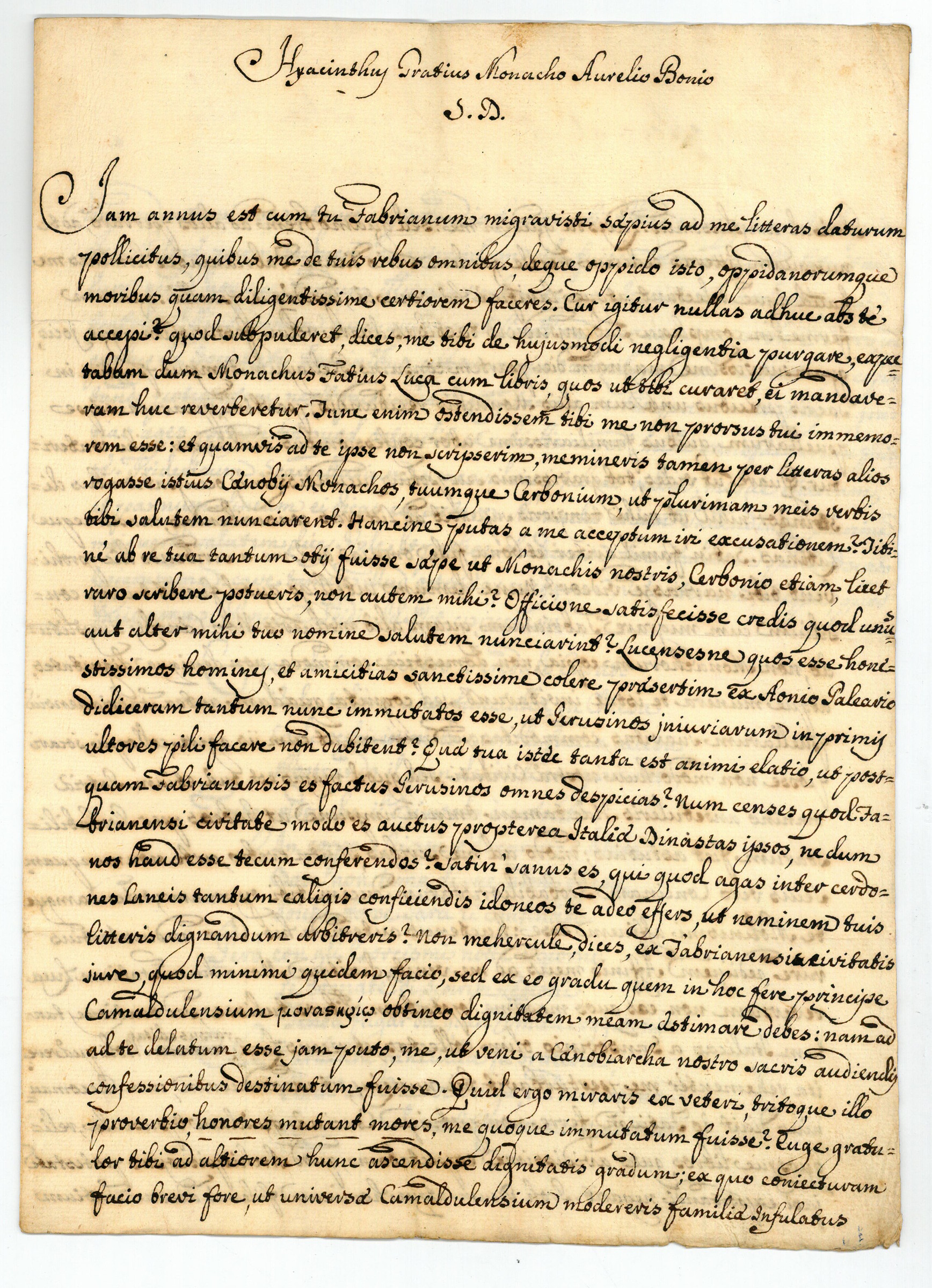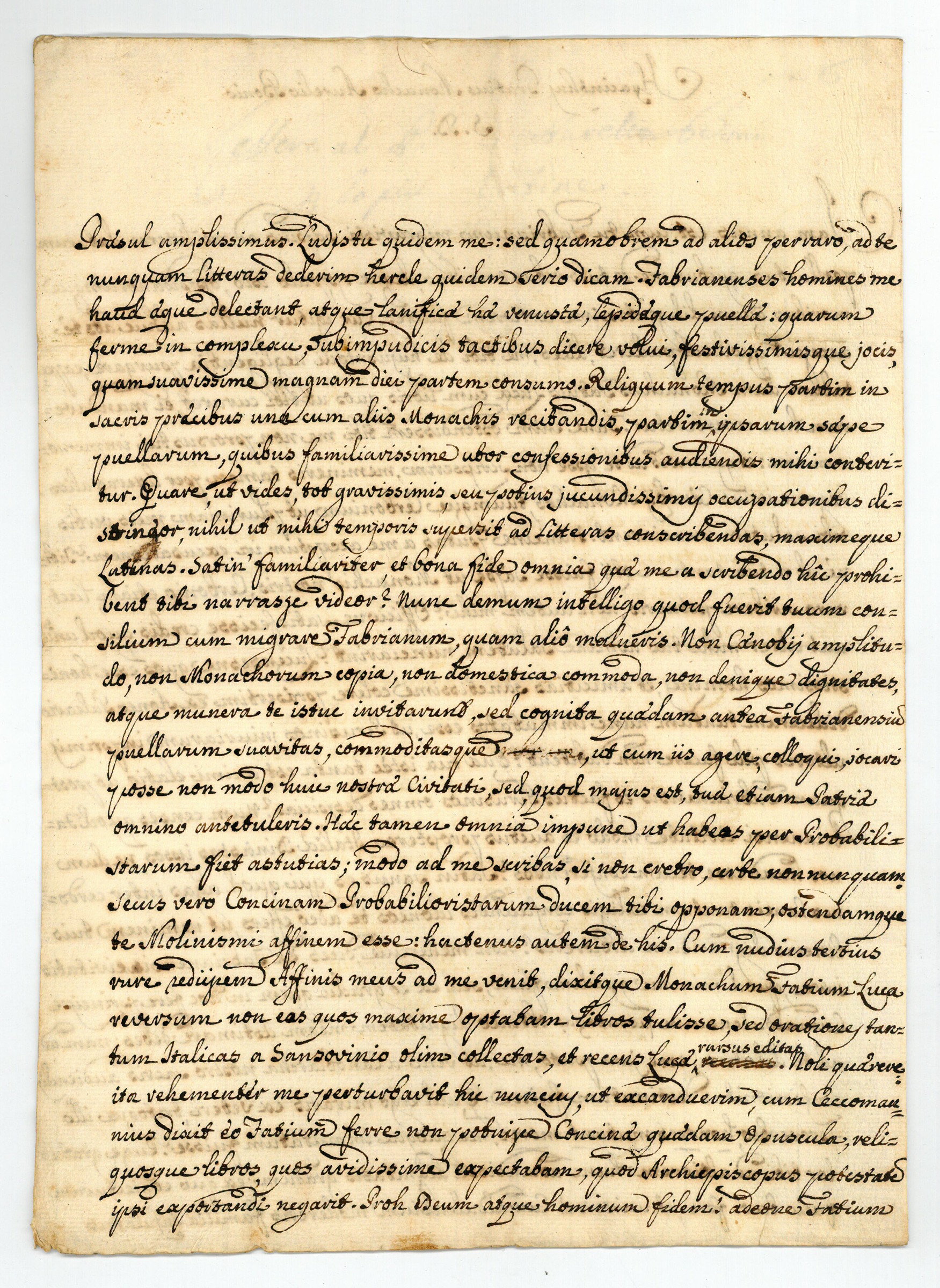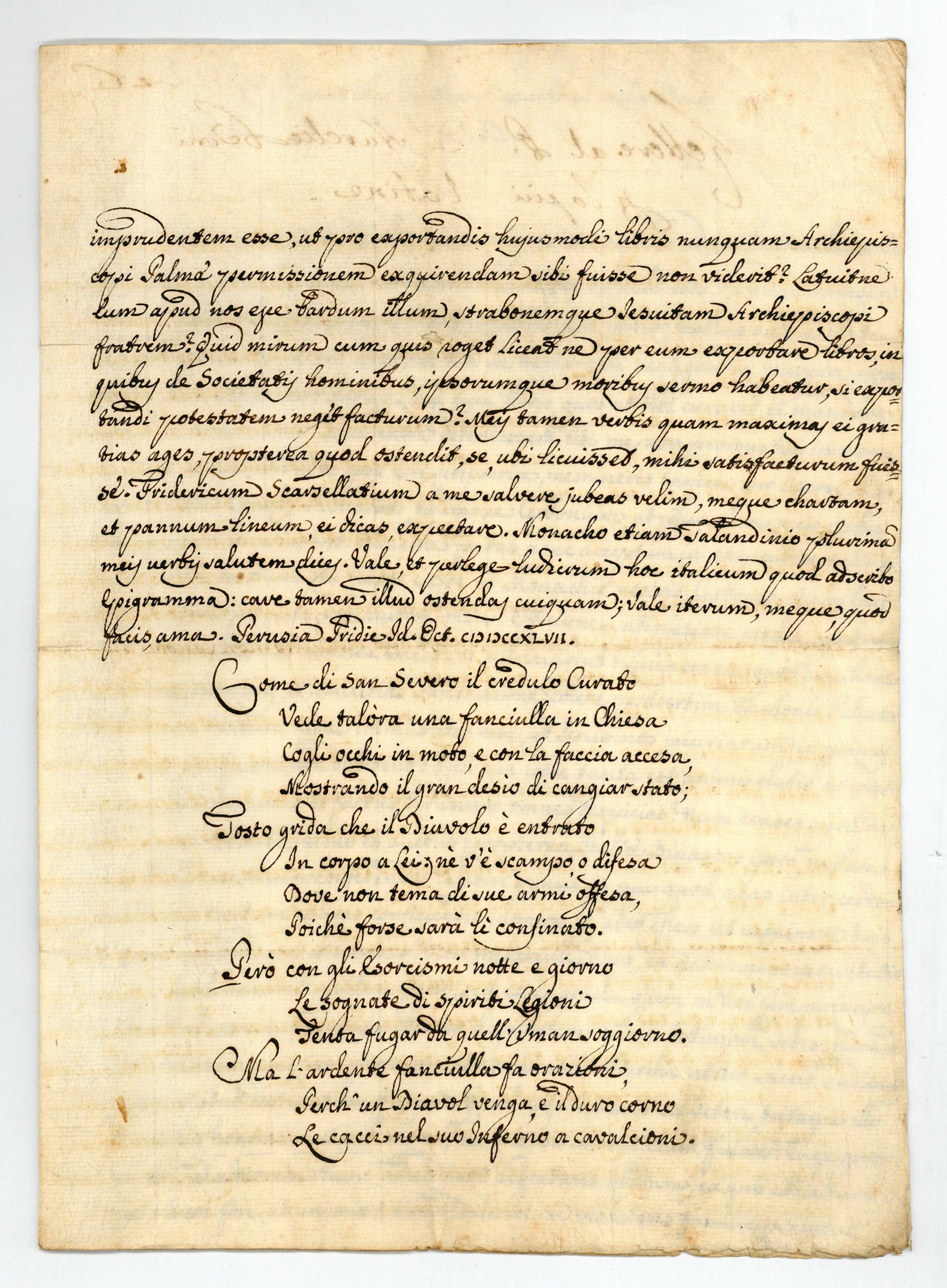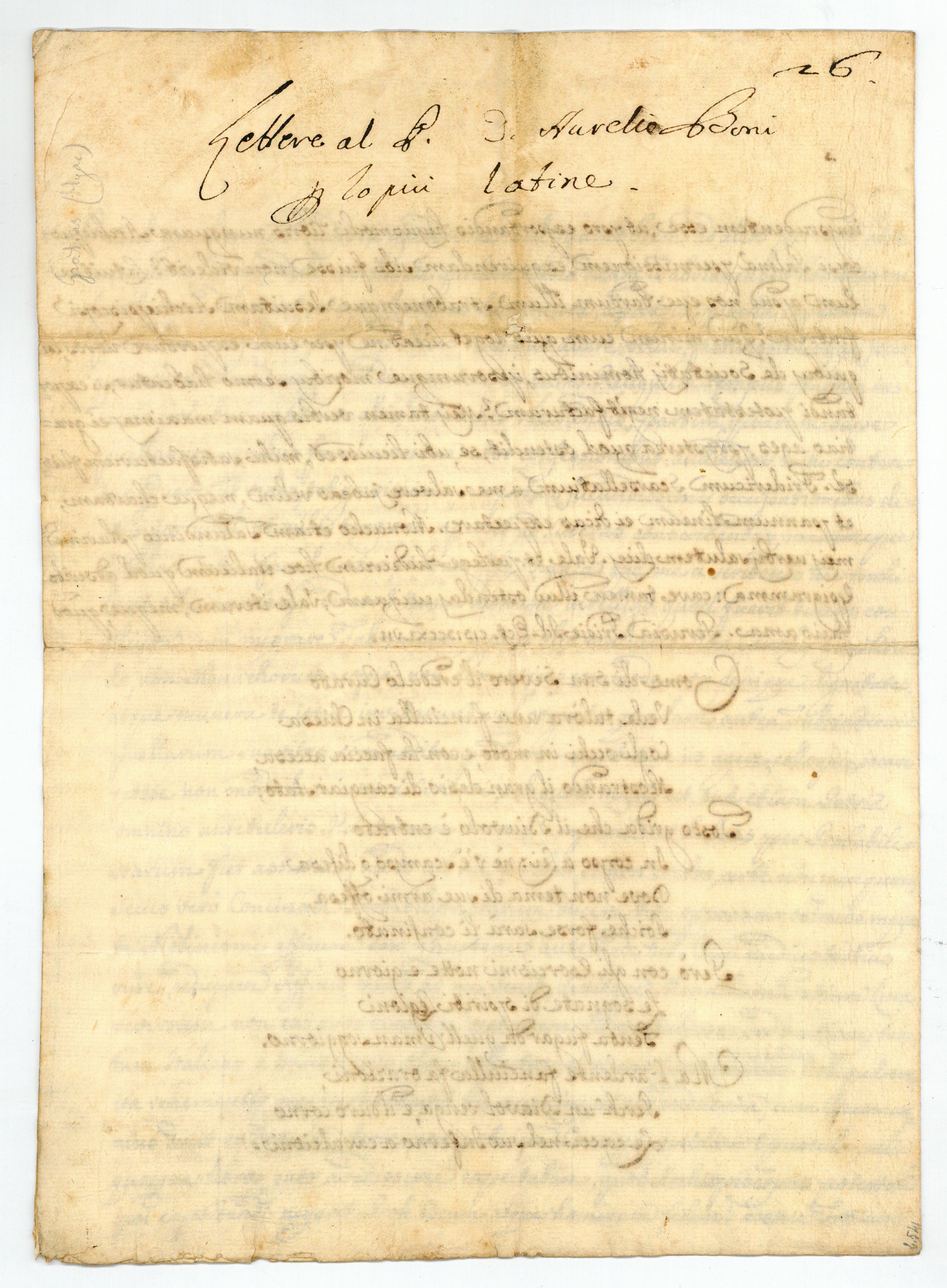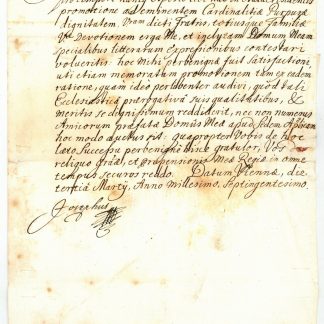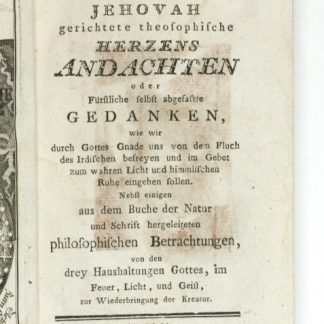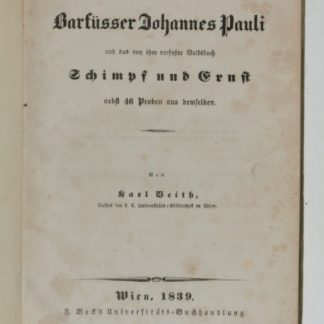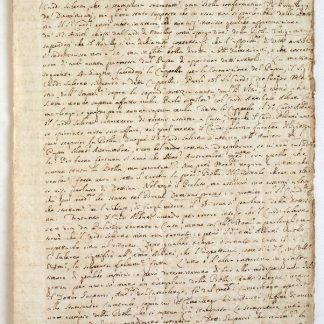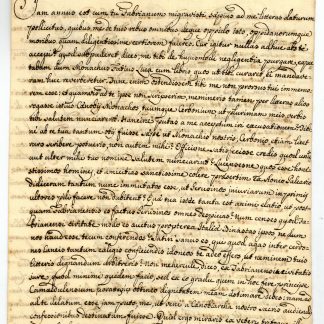"Fabrianensium puellarum suavitas": the devilish temptations of monks' relations with women
Autograph letter signed (in the salutation: "Hyacinthus Pratius").
Large 4to. Latin and Italian manuscript. 3 pp. on bifolium.
€ 450,00
An extended expression of bitter disappointment between former friends. The nobleman Giacinto Prati confronts the Camoldese monk Aurelio Bonio with a series of forceful reproaches about their lack of correspondence since the latter moved to Fabriano near Ancona: "Iam annus est cum tu Fabrianum migravisti, saepius ad me litteras daturum pollicitus, quibus me de tuis rebus omnibus deque oppido isto, oppidanorumque moribus quam diligentissime certiorem faceres. Cur igitur nullas adhuc abs te accepi? "Quod subpuderet", dices, "me tibi de huiusmodi negligentia purgare [...]" ("It has now been a year since you moved to Fabriano, having promised to send me frequent letters, in which you were to inform me about your activities, about the town itself and the ways of its inhabitants. Why then have I not received a single letter from you yet? 'Because it shames me', you would say, 'to excuse myself of this kind of neglicence in front of you [...]'").
After listing his attempts to maintain contact between the two (and a handful of half-hearted responses by Bonio) - all in the form of emotionally-laden rhetorical questions - Prati moves to the high-point of his accusations: "Nunc demum intelligo quod fuerit tuum consilium cum migrare Fabrianum, quam alio malueris. Non Caenobii amplitudo non monachorum copia [...] non denique dignitates atque munera te istuc invitarunt, sed cognita quaedam antea Fabrianensium puellarum suavitas, commoditasque ut cum iis agere, colloqui, iocari posse [...]" ("Now at last I understand your reason for wanting to move to Fabriano, rather than elsewere. It was not the size of the monastery, nor the number of monks, [...] not, in short, the dignities and functions that invited you, but your previous knowledge of the sweetness of the Fabrian girls, and the convenience of being able to interact, chat, and joke with them [...]"). An Italian sonnet on the devilish temptations of monks' relations with women closes the resentful letter.
Well preserved in a clear, late humanist hand. Light browning throughout and minor roughing to the edges, not affecting the text. Small hole in p. 3 as a result of folding. Collector's note in ink on p. 4.

